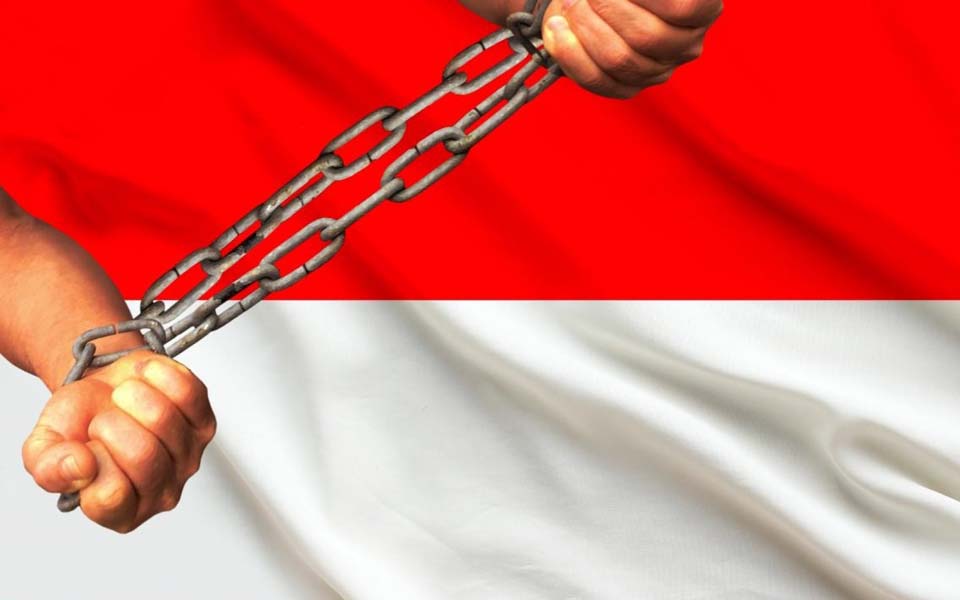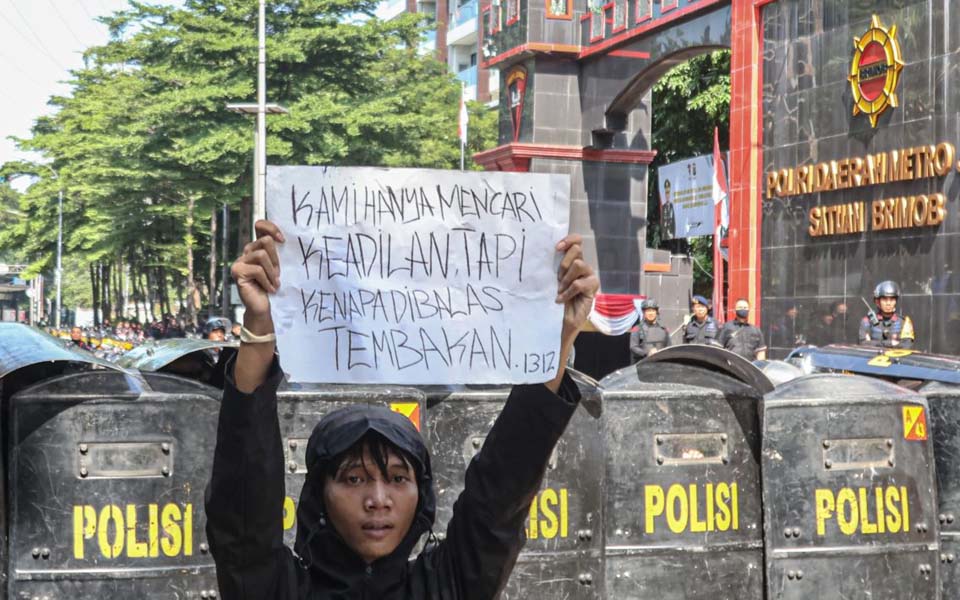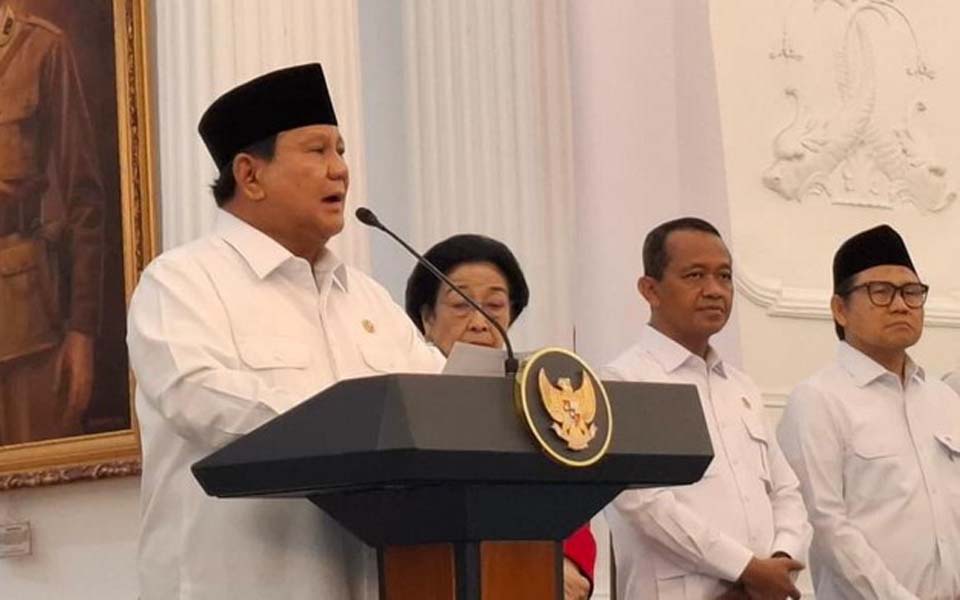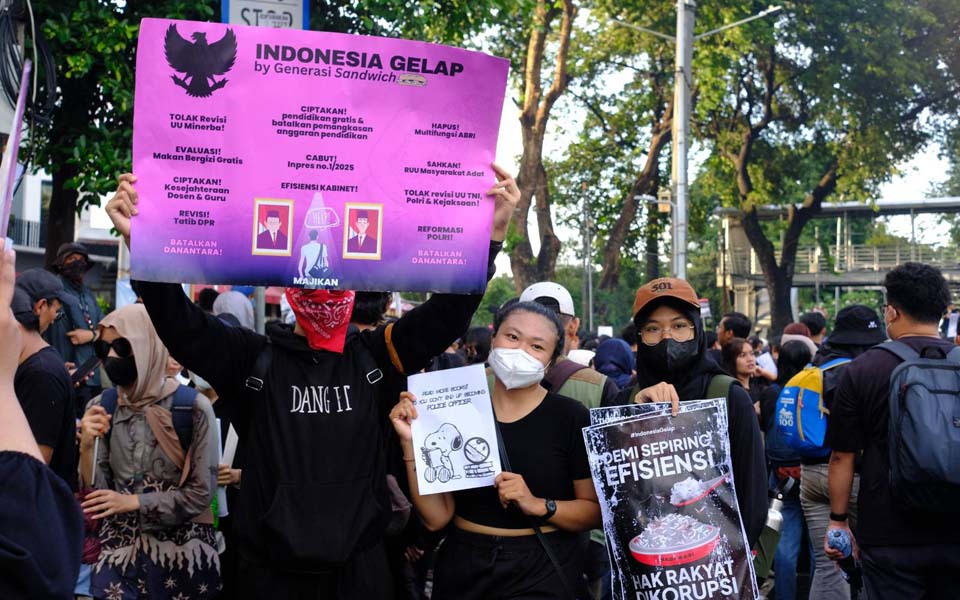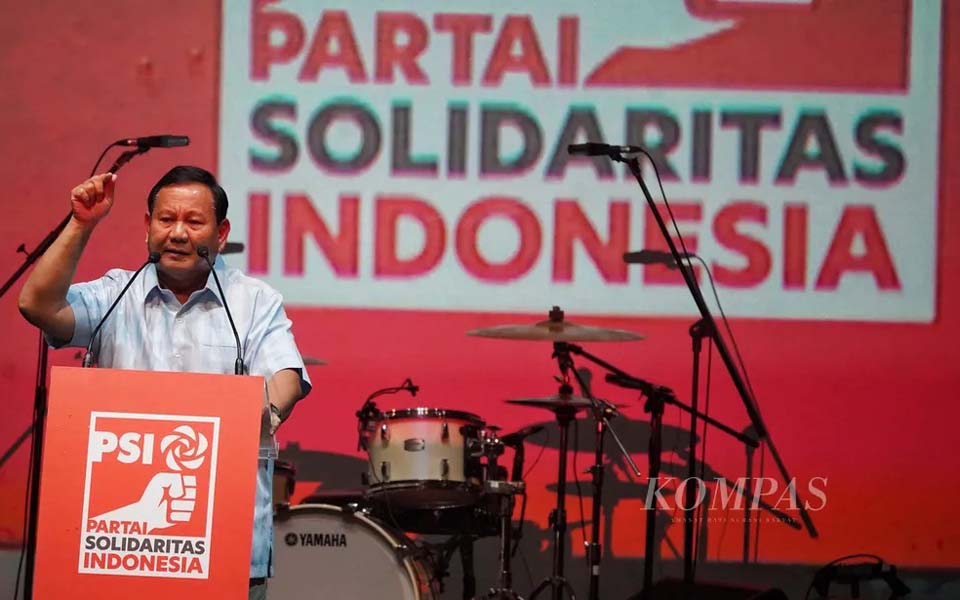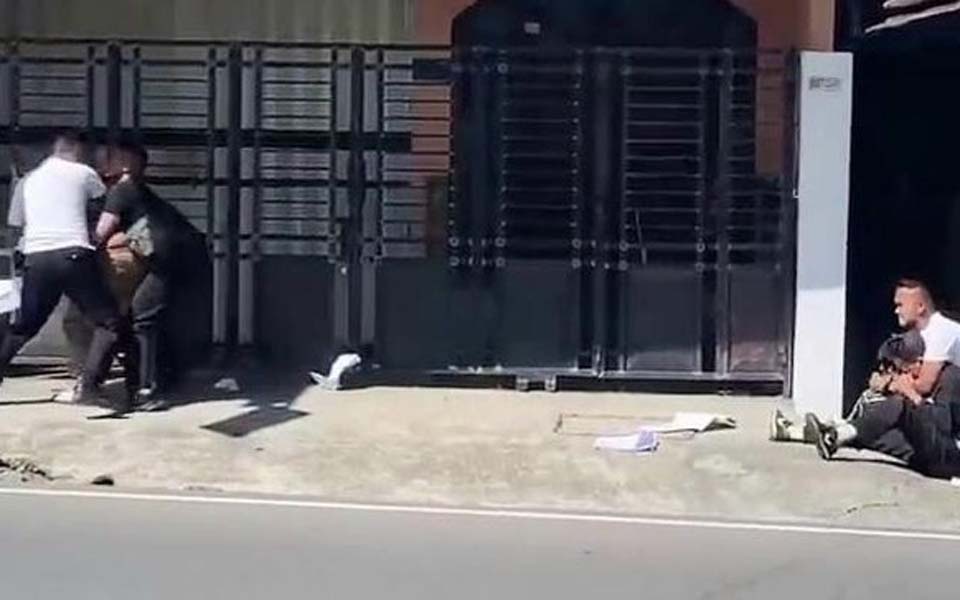More than 900 people have been indicted using the rubber (catchall) articles under the Information and Electronic Transaction (ITE) Law and the Criminal Code (KUHP) over the last eight years said Amnesty International Indonesia today in its reflection on 80 years of Indonesian independence.
From January 2018 to July 2025, Amnesty recorded that 903 civilians in 796 cases were indicted and criminalised under the hate sowing articles, defamation and makar (treason, subversion, rebellion).
"In today's state address (August 15), the president stated that it needed correction, supervision and criticism while asking parties outside the government not to stop being critical. In fact there are still many people suffering criminalisation just because they spoke out critically. Moreover the president did not even mention past human rights violations at all", said Amnesty International Indonesia Executive Director Usman Hamid.
"Indonesia became independent thorough the struggle for human rights from the oppression of a foreign colonial power. From [nationalist hero and feminist icon] Kartini, [women's rights activist and Social Affairs Minister] Maria Ulfah, [Indonesia's founding president] Bung Karno, [Vice President Muhammad] Hatta to [Prime Minister] Sjahrir calling for the right to be free from colonialism and oppression. Bung Karno [President Sukarno] even advised that we do not ever abandon history', meaning that past human rights violations should not be whitewashed, including through the elimination of historical facts of past human rights violations".
"Unfortunately, 80 years since [Indonesia's independence] the situation has in fact been turned around, human rights that became the foothold of the nation's independence were actually kept away from the main agenda of national life. This independent state actually used the law to limit the rights of the people to independent expression when voicing criticism, maintaining their rights, even considered it as 'threatening' the government", he said.
Amnesty International Indonesia was officially established towards the end of 2017 and began documenting cases of repression of freedom of expression related to the ITE Law and the makar articles since 2018 through media monitoring, community institutions, regional network reports and analysis of court documents.
"The criminalisation of peaceful expression injures the spirit of Indonesian independence which should guarantee the right of everyone to speak out and actively participate in the life of the nation", Hamid said.
Criminalisation through ITE Law
Amnesty recorded 710 cases with 758 victims of criminalisation using the articles on hate speech and defamation in the ITE Law from the period January 2018 to July 2025.
In 2018 there were at least 84 cases with 90 victims, in 2019 (167 cases with 173 victims), in 2020 (187 cases with 198 victims), in 2021 (112 cases with 118 victims), in 2022 (61 cases with 66 victims), in 2023 (63 cases with 69 victims) and in 2024 (19 cases with 22 victims). Meanwhile from January to July 2025 there were 17 cases with 22 victims.
As many as 634 out of the 758 victims have been sentenced at the district court level, the rest are still undergoing legal proceedings both in court and through criminal investigation.
Victims of the ITE Law are spread across 38 provinces. East Java is the region with the largest number of victims, 79, followed by and including Jakarta province (67), North Sumatra (59), South Sulawesi (52) and West Java (47).
"There were no regions that are free from these cases of criminalisation", said Hamid. "Even worse the initiative to prosecute using the rubber articles in the ITE Law originated from the police themselves through cyber patrols", Hamid added.
The National Police Cyber Patrol processed 347 people, while hundreds of other victims were charged after state and non-state actors such as local governments, the TNI (Indonesian Military), ormas (mass or social organisations) and private companies reported them to the police with accusations, including among others, of slander and defamation.
The three articles in the ITE Law most commonly used by the police to criminalise freedom of expression were Article 27 paragraph (1) on morality, Article 27A on prohibitions against attacking the honour or good name of others and Article 28 paragraph (2) on hate speech.
"We also saw terrible phenomenon such as repeated criminalisation of individuals who have already been punished under the ITE being criminalised again with the same law only because they voiced criticism", said Hamid.
For example, in Keerom regency, Papua, on July 8 a resident was arrested by police after uploading criticism on social media over the alleged misappropriation of School Operational Assistance Funds (BOS) at a high school in Keerom.
In 2019, a resident who worked as private businessperson was also sentenced to seven months in prison by the Jayapura District Court, also ensnared by the ITE Law, for being found guilty of defaming the good name of a candidate for the governor of Papua at the time.
Convicted for treason
From January 2019 to April 2025, 145 Papuan and Maluku activists were convicted in 86 treason cases simply for peacefully voicing their aspiration for independence.
Amnesty International documented 46 cases with 58 victims in 2019, 2020 (10 cases, 28 victims), 2021 (eight cases, 22 victims), 2022 (15 cases, 24 victims), 2023 (four cases, four victims), and 2024 (two cases, five victims). Meanwhile, from January to April 2025, there was one case with four victims.
"They were prosecuted under Articles 106 and 110 of the KUHP related to makar, simply for peacefully expressing their political views, something the republic's founders also did when fighting colonial rule", said Hamid.
Amnesty International recorded 70 cases of treason in Papua, with 127 victims, and 16 cases of treason in Maluku, with 18 victims. A student in Jayapura City was even charged with treason twice in 2021 and 2022, simply for expressing peaceful protests.
A total of 127 people have being sentenced at the district court level, while 18 others still have the status of suspect.
Amnesty International does not have a position on the political status of Indonesia's provinces, including calls for independence. However, we believe that everyone has the right to enjoy the right to freedom of expression, including to voice political demands peacefully, in accordance with international human rights law.
The widespread and ongoing illegal arrests and detentions in Papua and Maluku to obstruct political activities and suppress freedom of expression and peaceful assembly demonstrate the Indonesian government's reluctance to accept views perceived as being in opposition.
The criminalisation of citizens through treason charges has continued to occur this year. On April 28, the Sorong city Municipal Police (Polresta) announced the arrest and determination of four activists from the Federal Republic of West Papua (NRFPB) who have been charged with makar.
"They were arrested just for sending letters to the offices of the governor of Southwest Papua, the Sorong city Polresta, and the Southwest Papua People's Assembly containing an invitation to peace talks between the government and the NRFPB", said Hamid.
"The government and law enforcement officials must distinguish between peaceful aspirations for independence and violent criminal activity. The criminalisation and restrictions on peaceful political expression must be stopped immediately", Hamid said.
Amnesty and abolition
The government has indeed granted amnesty in several cases of freedom of expression, but this has been limited to those who insulted the president, regional heads, state officials and several sentenced for makar.
Of the 1,178 people who received amnesty, only six were convicted of makar and four were convicted of insulting the president and or state officials related to the ITE Law. "The amnesty program must also target all people convicted for peacefully speaking out without exception", Hamid said.
Without being followed up by revisions to or the elimination of legal regulations that are often used to criminalise critical voices, the amnesty program will only solve the problem downstream without addressing the root issue.
"The criminalisation of peaceful expression must be stopped immediately. Otherwise, Indonesia's Independence Day, celebrated every August [17], will become merely ceremonial", Hamid continued.
In addition to this, the Constitutional Court (MK) ruling last April, which exempted government agencies, institutions and corporations from being able to file defamation lawsuits, and declared that disturbances and or riots in digital space are not criminal offenses under the ITE Law, must be read as momentum for the state to immediately reform policies that have up until now silenced criticism.
"The MK ruling also presents an opportunity to improve relations between the state and its citizens. The state must act not as a censor, but as a protector of citizens' rights, including freedom of expression", Hamid said.
"If the president declared in his state address today that criticism should not stop, the authorities should follow this up by stopping the repression and criminalisation of citizens who speak critically and also release those charged with defamation and makar simply for expressing their opinions peacefully", Hamid continued.
[Translated by James Balowski. The original title of the article was "Refleksi 80 HUT RI: Kemerdekaan 903 orang dijerat UU ITE dan Makar sejak 2018".]





